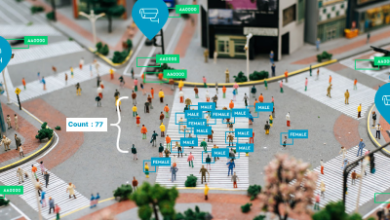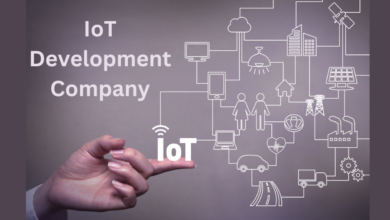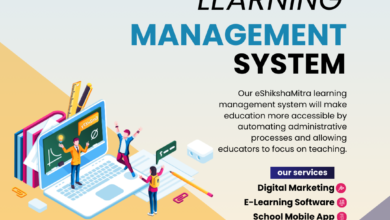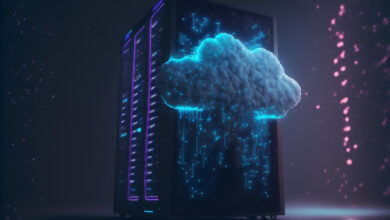The 7 Digital Workplace Trends of 2022 You Need To Know

Humanity has crossed through a handful of life-changing events and technologies that have completely changed how we live and move forward. The COVID-19 pandemic is one of these events, and the changes it has brought are monumental. One of the key areas impacted by the global pandemic is the digital workplace.
The way we are working compared to the way we used to work is different. Plus, a lot has changed in the last 10 years due to technology. While technology will keep on adding to the global workplace solutions, the pandemic has accelerated its speed and has presented some new ways of working.
In this article, we will explore the changes in how we work and the Microsoft modern workplace solutions that will be prominent in the future.
Top 7 Workplace Trends in 2023
The Generation Z is Entering the Workspaces
Generation Z, or millennials, is going to become an important part of the company’s workforce. These are the individuals born between 1997 and 2010.
They are known to be technologically more mature than their counterparts due to the level of exposure. they have gotten to technology from birth. With the coming of a new type of workforce in the company, changes in terms of the thought process, way of working, and utilization of technology will come.
To compensate for their technologically advanced understanding and follow a more pragmatic approach, it is essential to implement the required modern workplace solutions.
Managing this segment of the workforce also requires building a modern workforce and transforming the internal workings to help them thrive and perform well.
Digital Maturity Will Replace Experience
This is a worrying trend, but we are already seeing it being implemented in the workspace.
The demand for digital skills in modern workplaces has increased by 60%. An individual’s digital dexterity is also linked to their ability to bring new ideas and information models to the table.
Hence, going forward, digitally mature employees or comfortable with upskilling themselves will be preferred and become a part of the modern workspace.
Not only this, they will have to work on their reskilling as the technology we are working with today is highly dynamic.
In Comes the Cloud Technology
Cloud technology has a massive role to play in building and sustaining modern workplace solutions. Companies with the slightest idea of using cloud computing in their workspace are leveraging its benefits.

However, in the years to come, the implementation part will get stronger, integrated, and highly specific to every operation in the company. As organizations begin to implement cloud solutions in the workplace, they are experiencing better;
- Flexibility (29% of employees believe that work flexibility increases productivity)
- Adaptability
- Resilience
- Scalability
The virtualized IT infrastructures and cloud-computing systems are essential in the current scenario, where several companies have set up remote working.
Where the cloud helps manage remote working environments meticulously, it has also proven to be an effective tool in sustaining productivity levels.
Communication Will be Dynamic
Another critical ingredient of implementing modern workplace solutions is effective and quick communication. We have come forward from email and phone-based communication to include instant messaging., its social media, and video conferencing to the mix.
While these are effective ways to communicate, they must be used correctly lest risk facing some challenges. The challenge is not in the usage of the tools per se but the sheer volume.
So, where companies are getting the benefit of easy communication, they also need to look out for the communication overload. There shouldn’t be a scenario where the increased volume of digital workplace services, including communication is flooding the employee’s interface and the inbox with unnecessary notifications and messages.
Secure and Remote Access Will be Prevalent
We have gone from secure access to secure remote access. The pandemic has taught mankind a lot of lessons, and from these uncertain times, we have innovated.
To add another one of the modern workplace solutions to the mix, the organizations are fitting remote control access systems.
These systems ensure that only authorized personnel is entering the premises. Today the circumstances have changed to the extent that we can now monitor the environment of the room to ensure that it is always conducive.
With the integration of the cloud, we also need resources to implement cybersecurity measures. Where remote accessibility to a physical location or to a digital interface is great, companies need to add cloud access security brokers (CASB) to the network.
Further, companies are implementing virtual desktop infrastructure (VDI) models and secure access server edge (SASE) strategies to transform the digital network and provide the necessary security infrastructure.
Building the Infrastructure for Modern Meetings
The hybrid way of taking meetings and conferences has become a hit in modern workplace solutions.
As the organizations are going back to work from office culture, they are also fitting their meeting rooms with the required equipment to hold meetings online in the future. As we have adapted to build the required systems today, companies are further cementing their approaches to continue the momentum.
Besides fitting the required cameras and microphones, they are also getting the required firmware to conduct the meetings seamlessly.
Artificial Intelligence Will Make Workplaces More Productive
84% of managers believe that AI can make them more efficient in using their own expertise, knowledge, and interpersonal skills.
The integration of AI and robots in the workplace was taken as a move to hack the jobs of existing employees. But that is not the case, at least now.
Today we are seeing robots and humans working together seamlessly, making an organization more efficient and productive.
Humans get the time to focus more on building the business logic and taking the next step.
Conclusion
As businesses develop and face new challenges, they are quite confidently becoming more resilient, adaptive, and efficient. the existence of technology and b) a business’s capability to integrate them into the workplace. Hence, as more and more businesses implement modern workplace solutions, including cloud computing.
AI, robots, cybersecurity, remote access, etc., they become more productive and efficient. With the technological changes and advancements, the way employees look at their future employers is also transforming.
Where employees want to work in a modern workspace, employers need people who can proactively prioritize upskilling, digital dexterity, and reskilling.






